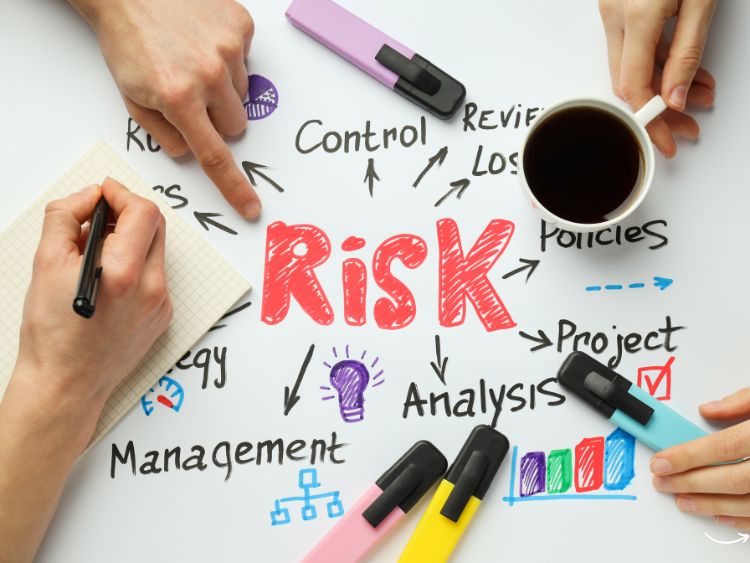Risk management jobs are pivotal in any organization, ensuring stability and predicting threats before they manifest. In a world riddled with uncertainties, the demand for skilled professionals who can effectively mitigate risks is at an all-time high. This article dives deep into the diverse world of risk management careers, highlighting key roles, essential skills, and future trends.
What do risk managers actually do? In essence, they’re the sentinels, ever-vigilant against potential financial, operational, strategic, or compliance failures. Working across various industries—from finance and insurance to healthcare and manufacturing—these professionals are not just problem solvers but also strategic planners, data analysts, and decision influencers.
In this guide, we’ll break down the roles, paths, and perks of carving out a career in risk management. Whether you’re just kicking off your professional journey or looking to pivot into a role that makes the most of your analytical prowess, there’s a place for you in the risk management arena.
What Are Risk Management Jobs?
Risk management jobs involve identifying, analyzing, and mitigating risks that could hinder an organization’s ability to achieve its goals. This field blends quantitative analysis, strategic foresight, and practical problem-solving skills to safeguard a company’s assets and reputation.
Key Responsibilities in Risk Management
Here are some common tasks that risk managers undertake:
- Risk Assessment: Conducting detailed evaluations of potential risks and their impacts.
- Strategy Development: Crafting strategies to reduce, transfer, or avoid risks.
- Compliance and Reporting: Ensuring adherence to laws and regulations, and reporting risk positions to stakeholders.
- Continuous Monitoring: Keeping an eye on new and evolving risks as the business landscape changes.
Types of Risk Management Roles
Risk management encompasses a variety of specialties, each with its unique focus:
- Operational Risk Manager: Focuses on internal processes, systems, and human factors.
- Financial Risk Manager: Deals with market-related risks and financial forecasting.
- Cybersecurity Risk Manager: Specializes in preventing information technology breaches.
- Compliance Officer: Ensures that the organization complies with both external regulations and internal policies.
The Skills You Need to Excel
To succeed in risk management, you’ll need a robust skill set:
- Analytical Skills: Ability to dissect complex situations and foresee potential outcomes.
- Decision-Making Abilities: Capable of making quick, informed decisions.
- Communication Skills: Clear, concise communication, especially when explaining complex data.
- Attention to Detail: Vigilant in monitoring and managing small changes that could have big impacts.
Education and Certification
Most risk management positions require at least a bachelor’s degree in finance, business, or a related field. However, certifications can elevate your resume:
- Certified Risk Manager (CRM)
- Financial Risk Manager (FRM)
- Professional Risk Manager (PRM)
These certifications are not just feathers in your cap; they’re badges of your expertise and commitment to your profession.
FAQs About Risk Management Careers
What is the career progression like in risk management? Career progression typically starts from junior risk analyst roles, moving up to risk manager, senior manager, and potentially to chief risk officer (CRO).
Is experience in finance necessary for a risk management job? While it’s beneficial, risk management also values experience in fields like law, engineering, and information technology, depending on the risk focus.
Can risk management professionals work remotely? Yes, many risk management tasks can be performed remotely, although some companies may require occasional office presence for meetings and presentations.
Transitioning into a Risk Management Career
Transitioning into risk management is feasible from various professional backgrounds. Key is to leverage your existing skills and experience and highlight how they apply to risk management. Additional training or certification in risk management can also be incredibly beneficial.
Summary
Risk management jobs offer a dynamic and challenging career path, perfect for those who thrive in environments that require rigorous analysis, strategic foresight, and decisive action. With the right education, skills, and mindset, a career in risk management is not just a viable option but a rewarding one that plays a critical role in any organization’s success.
Engaging in risk management is not just about preventing losses. It’s about creating a framework that allows an organization to take calculated risks—risks that can lead to growth and innovation. If you’re ready to stand between your company and the chaos of uncertainty, then a career in risk management might just be the right fit for you.

